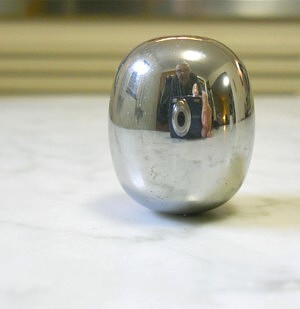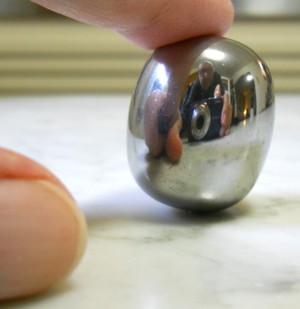MARCH
31, 2019 ![]() GET
ME A FLOCK OF COWS
GET
ME A FLOCK OF COWS
English has a vocabulary of one million words, making it a rich language which unfortunately is hard to learn. In many cases, depending on the context, we use a number of different words to express a single concept. One such concept is “group.”
|
|
If a group of geese flies over a group of cows, we call them a “flock” of geese and a “herd” of cows. And those collective nouns are not interchangeable. Or consider just a few of the different words and phrases we customarily substitute for the simple verb “get.”
ACHIEVE
success |
It's possible to use “get” in all such cases. No wonder Charles Kay Ogden introduced Basic English, which limits its vocabulary to 850 core words for the benefit of non-native speakers.
|
MARCH
28, 2019 |
The previous installment of Delazon Smith's 1837 pamphlet Oberlin Unmasked listed the confessed shortcomings of certain Oberlin professors and theological students. This time, we'll encounter some of those pious personages off-campus, in the Ohio towns of Granville and Poland.
|
At Granville the convention of the Ohio Anti-Slavery Society opened on April 27, 1836. The Society was celebrating its first anniversary, but not without opposition. Some of it arose from the fears of Ohioans that slaves fleeing the South would take away their jobs. Granville's churches and other meeting places were closed to the trouble-making reformers. Therefore, wrote Robert Samuel Fletcher, the abolitionists met in “a large temporary temple on a hill about a quarter mile north of the village.” It was actually a barn. There 192 delegates, including 26 from Oberlin, assembled on a Thursday morning. They heard Oberlin's President Asa Mahan declare it “the duty of the church to debar from her privileges all who persist in the sin of holding their fellowmen in the bondage of slavery.” |
|
The abolitionists met again on Friday. At 2:00 they “adjourned and returned to the town amid a shower of rotten eggs. Some of the delegates were assaulted with clubs; an Oberlin student, William Lewis, was knocked down. There was just about enough persecution to maintain the enthusiasm of the reformers at a high pitch.” Smith observed one heroic reformer who, under attack, emulated St. Peter. He denied his faith. However, he then proudly wore his egg-stained hat on his 100-mile return journey to northern Ohio.
This installment is titled Conduct And Character, Concluded.
MARCH
27, 2009 ![]() TOO
SLOW, TOO FAST, TOO SLOW
TOO
SLOW, TOO FAST, TOO SLOW
For lunch, I often visit one of several “family” restaurants in the area. If possible, I avoid the crowds by timing my visit for the middle of the afternoon. I’m in no hurry. However, I do seem to be out of sync with restaurant rituals.
When I arrive and ask for a table for one, the hostess is flummoxed. There are many empty booths and tables available, but where can she put me? Sometimes she has to call in her co-workers for a consultation. They puzzle over the seating chart, trying to determine which section should be burdened with my presence. How many servers are still on duty? Whose turn is it next? Finally, a decision is reached, and a notation is made on the chart.
But the hostess still isn’t ready to seat me. First she has to pick up a menu from a stack on her podium. Then she grabs another menu or two for the monthly specials or beverages or desserts. Then she obtains a placemat. Then she picks up a knife, a fork, and a spoon, although not separately; fortunately, they have already been packaged with a napkin wrapped around them. If I were a few decades younger, she might also pick up a couple of crayons so I could color the placemat. Only after she’s collected all this gear is she ready to lead me to my table.
Wouldn’t it be more efficient if each menu had pockets in its cover, to accommodate the secondary menus and the placemat and maybe even the silverware? If the whole kit had already been assembled in advance, the hostess would only need to grab one object per guest, not half a dozen.
When we arrive at the table, I’m asked for my beverage order even before I have a chance to sit down. “Can I bring you some coffee, or maybe an iced tea?” Now this might be appreciated by the customer who desperately needs a cup of coffee right away. But I’m not in a hurry, and there might be some unusual beverage listed on one of those menus that I might like to try. It’s not as though I’m going to agonize over the choice of the best wine to complement my entrée, but I’d prefer not be rushed.
If I do make a quick decision about the beverage, the waitress brings it a minute later and asks if I’m ready to order. I’ve only begun to page through the menu, so I ask for extra time. Fine, she says, I’ll be back. In another couple of minutes I’ve made my selection.
But she doesn’t come back.
Another five minutes elapse. By then, I’ve forgotten what my selection was.
In summary, the restaurant staff is too slow in figuring out where to put me, too fast in asking for my order, and too slow in taking it. These inconveniences are intolerable!! Can’t something be done??
MARCH
24, 2019 ![]() MY
ODD PAPERWEIGHT
MY
ODD PAPERWEIGHT
In my home there's a little object made out of solid metal. It's more or less egg-shaped, but I can stand it on end. Even if I reach in and tip it a little sideways, it wobbles right back to an upright position. How can this be? See my new article about the Superegg.
When I edited the Control Engineer's Handbook for my college radio station in 1968, it included the disclaimer, “Heaven knows our technical staff tries to keep things going. But if you could see the wiring behind some of those panels, you'd know why the old boards just aren't too reliable.”
|
|
Visiting WOBC 50 years later last May, I noticed that the situation hadn't improved much. The panic light was on. Also, there was a sign alerting the DJ's that the stereo still wasn't working because the right channel was still dead. |
|
The station tweeted these photos to demonstrate that “WOBC's Quality Cable Management™ insures to bring you the best possible sound out of the left speaker only!” |
|
|
MARCH
21, 2019 |
|
I never realized that birds knew so much about astronomy. My neighborhood has been quiet for months. But then the vernal equinox arrived at 5:58 last evening, and today when I got home from lunch the air was filled with birdsong from at least four different species. No robins yet, but they'll join the chorus soon. Spring is here!
MARCH
19, 2009 ![]() TIMELESS
TABLEWARE
TIMELESS
TABLEWARE
On March 12, 1974, as I was moving into my first apartment, my mother gave me a 20-piece set of Corelle dishes — porcelain-like but microwave-safe, made from laminated glass.

|
If Corning continues making such excellent products that never need to be replaced, how long can that company stay in business? |
MARCH
17, 2019 ![]() HE
WAS MISQUOTED!
HE
WAS MISQUOTED!
This is “Selection Sunday,” which means the national college basketball tournaments are about to begin. After each game, the coaches and star players will sit behind a table in the press room to tell the assembled media what happened. The print reporters will take notes. However, they don't really have to, because a verbatim transcript will be handed to them shortly afterwards.
It's not always like that. For example, no official version of the participants' remarks was available after the Pitt-Duquesne game in 2005, and the reporters had to reconstruct those remarks as best they could in writing their stories.
|
As one might expect, there was not word-for-word agreement as to what had been said. My comparisons resulted in this month's 100 Moons story. |
|
MARCH
14, 2019 |
We've reached the halfway point of our unmasking. Delazon Smith has detailed the shortcomings of student life in the early days of Oberlin College: learning, labor, sex, and food. He now turns to the shortcomings of the faculty and other “pious” Oberlinians.
|
|
Sometimes they held a “protracted meeting.” No math instruments were involved, just debating and preaching and confessing and praying. (In the 20th century we would call these “revival meetings.” For a week, members of a church would forgo their usual evening activities and attend special services, conducted every night by an allegedly inspiring preacher from out of town.) |
Charles Finney lectured in 1835 that protracted meetings “are not new, but have always been practiced, in some form or other, ever since there was a church on earth. The Jewish festivals were nothing else but protracted meetings. In regard to the manner, they were conducted differently from what they are now, but the design was the same: to devote a series of days to religious services, in order to make a more powerful impression of divine things upon the minds of the people. ...Yet now in our day they have been opposed, particularly among Presbyterians, and called New Measures.”
Finney argued that “when circumstances plainly call for it, it is our duty to lay aside every other business, and make direct and continuous efforts for the salvation of souls.”
Therefore, in the fall of 1836, classes were canceled and the people of Oberlin were summoned to a protracted meeting where they were urged to beg forgiveness for their sins. Various faculty members and students admitted to stealing chickens, eating too much gravy — and wife-beating! Some even doubted the existence of God.
The details of their confessed hypocrisy are part of my serialized condensation of Oberlin Unmasked, Smith's 1837 pamphlet criticizing the institution in its fourth year of operation. (The college is now in its 186th year, and I can attest that conditions are much improved.)
This installment finds fault with the Conduct and Character Of The Church.
MARCH
13, 2009 ![]() AT
THE EPOCH, I WAS 22 YEARS OLD
AT
THE EPOCH, I WAS 22 YEARS OLD
The things I learn from being curious!
The paper edition of TV Guide has been downgraded to the point that it’s inadequate for planning my television viewing. For more than 50 years I'd relied on this reference, but reluctantly last year I had to turn to the magazine’s on-line listings. However, they still don't list all of my cable channels, and some of the channel numbers are wrong, so I recently switched to the more accurate Zap2it.
I noticed when I requested a Zap2it schedule grid starting at 7 pm tomorrow night, the Internet address shown on my web browser ended in “fromTimeInMillis=1237071600000.” When I requested a grid that started an hour later, the long number changed to 1237075200000.
Does “TimeInMillis” perhaps mean “time in milliseconds”? Simple subtraction shows the latter number to be 3600000 greater than the former. One hour does in fact equal 3,600,000 milliseconds (1000 milliseconds in a second, multiplied by 60 seconds in a minute, multiplied by 60 minutes in an hour). Aha, I thought, I’ve broken the code.
But time in milliseconds since when? What was the starting point, when TimeInMillis would have been zero? Perhaps the most recent New Year’s Day?
I divided TimeInMillis = 1237075200000 by 3600000 to obtain TimeInHours = 343632, then divided that by 24 to obtain TimeInDays = 14318. Fourteen thousand days is considerably more than a year. Dividing it by 365¼ gives us 39 years and 73 days, approximately. Subtracting that from the current date brings us back to January 1, 1970, which was apparently the arbitrary starting point for the Zap2it schedule makers.
Some further research reveals that it wasn’t their idea. Computer programmers of the 1970s chose midnight on January 1, 1970, as the basis for something called Unix time or POSIX time. They called that zero moment “the epoch” and counted upward from there by milliseconds. The resulting 13-digit numbers may look awkward, but the arithmetic is easier with them than with our usual non-decimal combination of years, days, hours, minutes, and seconds.
Four weeks ago tonight, according to Wikipedia, Unix time reached 1234567890000. Nerds did not let the occasion pass unnoticed. “Parties and other celebrations were held around the world, among various technical subcultures, to celebrate 1234567890 day.”
What time is it now? This web page will tell you.
MARCH
10, 2019 ![]() SEE
WHAT I BUILT
SEE
WHAT I BUILT
Everyone needs a hobby. Some build birdhouses, but I'm not as handy with a hammer as I am with a mouse. So I built a calendar.
Typical calendars show a single month, but I'm interested in the bigger picture. I wanted to be able to see a longer period of time without flipping through pages. Therefore, I created a Word document with a huge 48x17 table, a calendar for all of 2019 plus the first half of 2020. I printed it on card stock and cut it into three six-month pieces, three-quarters of an inch high and totaling 17 inches wide. They're now attached to the bottom edge of my computer monitor, always in view.
![]()
To fit the strip on my monitor's narrow frame, I saved space by omitting the two top rows. One of them usually labels the months. The other usually labels the days of the week, but instead I employed my TV-inspired color code in which, for example, Wednesdays are green. That left only five rows. Each month has five rows, seven daily columns, and 5x7 = 35 cells.
|
At most there are 31 days in a month, so I had at least four cells to spare. I used two to identify the month (or, for January, the year) and two for the previous month's 30 and/or 31 if necessary. |
|
To render the tiny nine-point-high numbers a little easier to tell apart, I chose a bold condensed Corbel font in which the digits 68 extend above the 012 line while the digits 34579 hang stylishly below.
So what have you made this winter?
MARCH
7, 2019 ![]() TIPS
FOR TV PRESENTERS
TIPS
FOR TV PRESENTERS
Are you addressing a million viewers on television? Don't think of it that way. Imagine you're speaking one-on-one with your old pal Fusfast. She's your Friend Unfortunately Suffering From A Sore Throat.
|
|
Imagine that you can see Fusfast's face in the camera lens. Although her laryngitis prevents her from responding verbally to what you say, you can imagine her reacting in other ways. You smile and wave to Fusfast, and she smiles back! |
|
Here comes an interview guest. Now it's a three-way conversation. Say hello to the guest, turn to Fusfast and explain “this is Mayor Smith, who's been in office for five years now.” Then turn back to the guest with a question. Don't say to the mayor, “You were on the Council when this law was passed; what was your thinking then?” He knows he was a councilman. Instead, confide to Fusfast, “Mayor Smith was on the Council when this law was passed.” Then turn back to the mayor and ask about his thinking at that time. |
And if the mayor tells a joke, don't act as though Fusfast isn't in the room. Shoot her a quick grin to include her in the merriment!
|
MARCH
5, 2019 |
|
|
Some TV sitcoms have titles that don't make a lot of sense. We've forgotten the significance of these situation-comedy names because their situations appeared only in the pilot episode. Ray gets a compliment. His resentful brother grumbles, “Oh, sure, EVERYBODY LOVES RAYMOND.” |
|
|
|
Senior citizens at a lunch table won't let a woman join them: “You can't sit here.” She asks, “Why not? Who are you guys, THE COOL KIDS?” |
MARCH
3, 2019 ![]() THE
INVENTION OF CPR
THE
INVENTION OF CPR
|
|
I've rewritten yet another Bible story in the first person. Which apparent miracle are we giving an alternative explanation this time? Filling up the oil! Oh, and also Raising the Widow's Son. |
|
 MARCH
2019
MARCH
2019








 Today,
35 years later, these plates and bowls and cups are still in
use. As you can see, they’re still in perfect
condition. None has broken, chipped, faded, or aged in any
way. They’re as good as new.
Today,
35 years later, these plates and bowls and cups are still in
use. As you can see, they’re still in perfect
condition. None has broken, chipped, faded, or aged in any
way. They’re as good as new.







